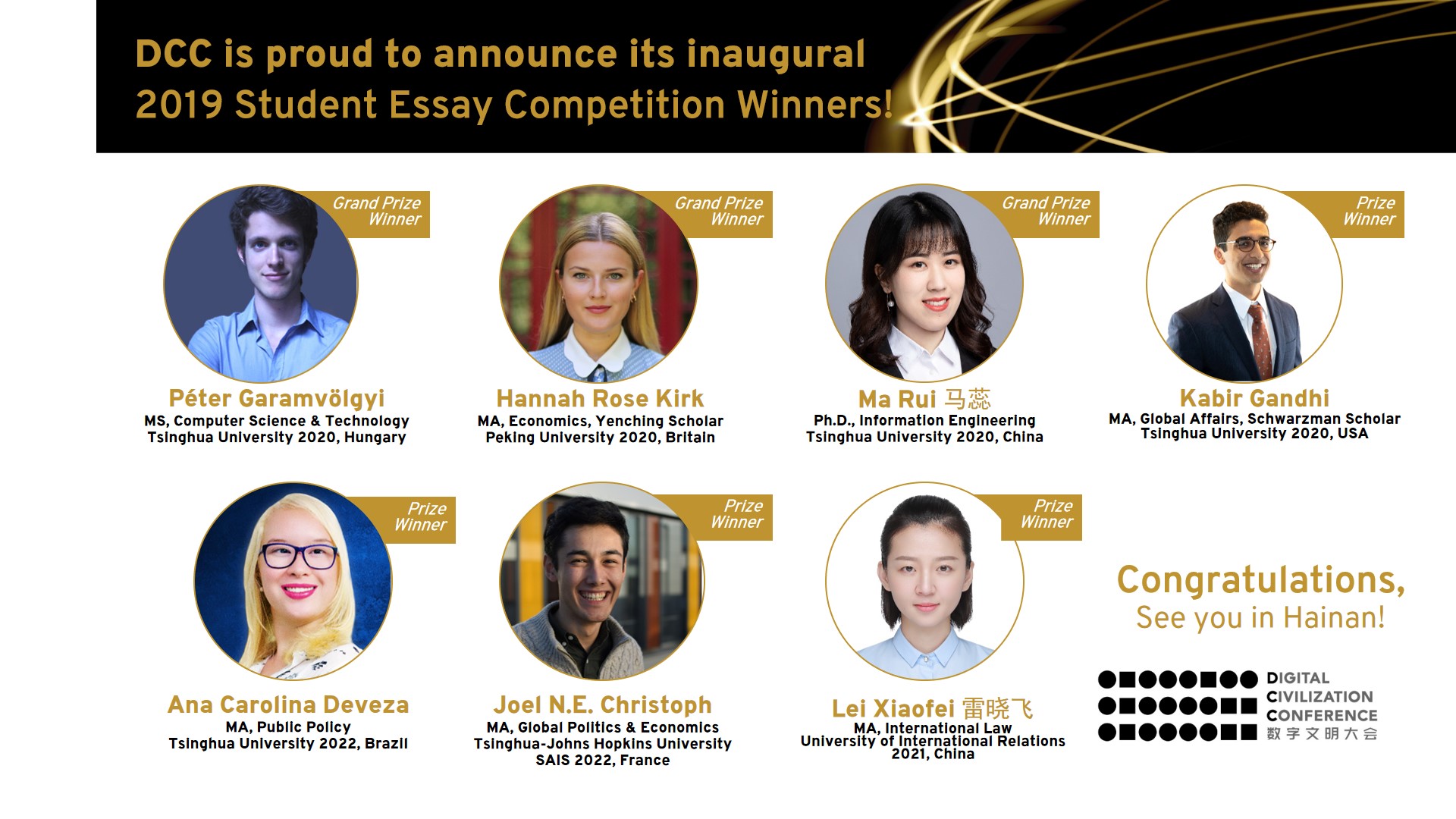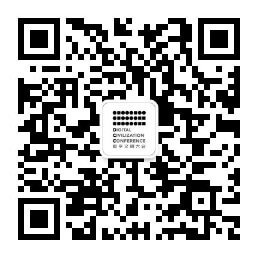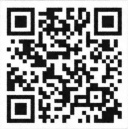
DCC's 2019 Student Essay Competition Winners
Source: DCCDate: 2019-12-03

Congratulations to the winners of DCC's 1st Student Essay Competition in 2019! 7 essays were selected as prize winners from the student submissions. Out of the 7 winners, there were 3 Grand Prize Winners who identified the challenges of data ownership and addressed solutions for moving towards a more balanced future. Please see below for more information on the selected winning essays.
Who Should Own Data?
Hannah Rose Kirk, Peking University
Abstract
This paper argues for a 'right to know' and a 'need to explain' approach to data rights, dismissing the 'right to own' and 'need to sell' approach as inadequate to deal with the complexities of the digital data ecosystem. Purely private or public governance of data cannot contend with data's lack of tangible boundaries, attributable ownership and clarity of use. Thus, data should not be commoditised, but instead knowledge asymmetries in the use of data should be reduced. Through presenting the problems with private and public ownership respectively, this paper finds an explainability approach to data rights offers the greatest flexibility in preserving privacy both across cultures and scenarios. Finally, the discussion of data ownership alone is no longer sufficient to deal with increasingly sophisticated technologies in the form of artificial intelligence or machine learning algorithms which amass and apply data in complicated ways. A knowledge-based approach contends best with protecting data rights also under these scenarios by explaining the data inputs to, and the model output of, algorithmic decisions.
A Decentralized Future
Péter Garamvölgyi, Tsinghua University
Abstract
Our societies are changing at a pace that has never been witnessed before. Rapid technological advancements, along with the need to solve humanity's latest and greatest challenges in a globally coordinated fashion, have been pushing us towards a new globalized world order where we are all interrelated and co-dependent. Contrary to the optimism of transhumanists like Ray Kurzweil [0], however, the default trajectory of technological advancement is not necessarily the one we desire. One undesirable outcome we have witnessed during the data-revolution of the last two decades is the immense centralizing potential of data ownership, which has been causing issues ranging from accidental leaking of personal information to intentional data misuse to gain control over our societies and, ultimately, over our minds. It is our generation's responsibility to call these out and work hard to re-align incentives in a way that results in a sustainable and humane Digital Civilization -- one that can serve as a stable foundation for all future generations.
[0] Kurzweil, Ray. The singularity is near: When humans transcend biology. Penguin, 2005.
Privacy and Exclusive Sharing Behind Data Ownership
Rui Ma, Tsinghua University
Abstract
In the context of the third revolution of science and technology, data is an important asset, but its value is only reflected in sharing. How to effectively ensure privacy and exclusiveness of data in the sharing process through technology and regulations is the most concerning issue among individuals, enterprises and governments.
Disclaimer: The views and opinions expressed in these articles are those of the authors and do not necessarily reflect the official policy or position of the Digital Civilization Conference Foundation.





